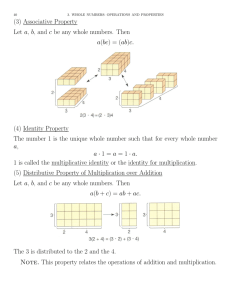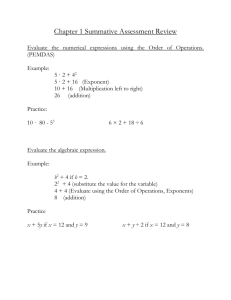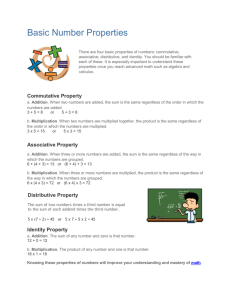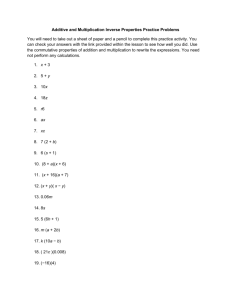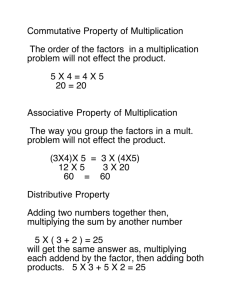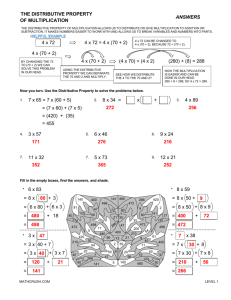Math 365 Partial solutions to Exam 1 (white version) 1. 10211 10111
advertisement
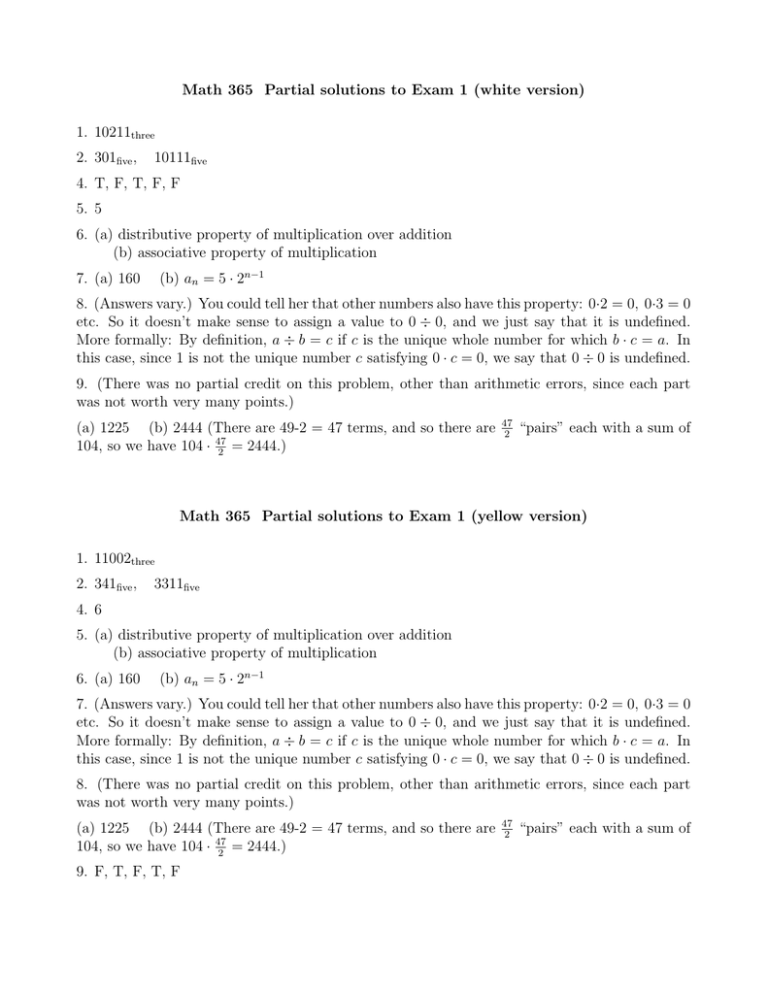
Math 365 Partial solutions to Exam 1 (white version) 1. 10211three 2. 301five , 10111five 4. T, F, T, F, F 5. 5 6. (a) distributive property of multiplication over addition (b) associative property of multiplication 7. (a) 160 (b) an = 5 · 2n−1 8. (Answers vary.) You could tell her that other numbers also have this property: 0·2 = 0, 0·3 = 0 etc. So it doesn’t make sense to assign a value to 0 ÷ 0, and we just say that it is undefined. More formally: By definition, a ÷ b = c if c is the unique whole number for which b · c = a. In this case, since 1 is not the unique number c satisfying 0 · c = 0, we say that 0 ÷ 0 is undefined. 9. (There was no partial credit on this problem, other than arithmetic errors, since each part was not worth very many points.) (a) 1225 (b) 2444 (There are 49-2 = 47 terms, and so there are 104, so we have 104 · 47 = 2444.) 2 47 2 “pairs” each with a sum of Math 365 Partial solutions to Exam 1 (yellow version) 1. 11002three 2. 341five , 3311five 4. 6 5. (a) distributive property of multiplication over addition (b) associative property of multiplication 6. (a) 160 (b) an = 5 · 2n−1 7. (Answers vary.) You could tell her that other numbers also have this property: 0·2 = 0, 0·3 = 0 etc. So it doesn’t make sense to assign a value to 0 ÷ 0, and we just say that it is undefined. More formally: By definition, a ÷ b = c if c is the unique whole number for which b · c = a. In this case, since 1 is not the unique number c satisfying 0 · c = 0, we say that 0 ÷ 0 is undefined. 8. (There was no partial credit on this problem, other than arithmetic errors, since each part was not worth very many points.) (a) 1225 (b) 2444 (There are 49-2 = 47 terms, and so there are = 2444.) 104, so we have 104 · 47 2 9. F, T, F, T, F 47 2 “pairs” each with a sum of
